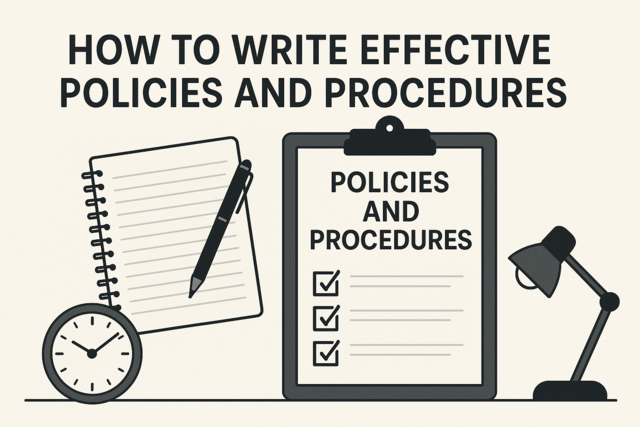Having an attorney working for you on a Workers' Compensation claim is not required, but it is certainly beneficial in many instances. If a worker has been very seriously injured, or an employer has been particularly negligent, it would be in the worker's best interest to ensure that his or her rights are being protected, and that he or she will be able to collect all the benefits and compensation that they deserve. The insurance company will have highly skilled insurance adjustors and attorneys on their staff, so a claimant in a Workers' Compensation case may find an attorney to be essential.
There are instances when a Workers' Compensation claimant is strongly advised to seek legal representation and these are listed here.
� You have been unable to get adequate medical attention and care.
� You are not collecting an income due to your injury.
� You are considering a lawsuit against someone, either your employer or a separate third party, or both.
� The insurance company has denied you benefits.
� Your employer disagrees that you were injured in the workplace.
� You are contemplating an appeal of a denial of benefits.
When you are considering an attorney, you will have an initial consultation with your prospective attorney. There are a few important elements that should be discussed at every initial consultation. One of the most important topics will be fees. You will want to have a very clear understanding of exactly how much your attorney fees will be. In many instances, it will be a percentage of the liability award you receive, and this percentage is often 20%, although it may vary greatly depending on the circumstances of your claim. Many attorneys will also work on a contingency basis. This means that they will not be paid unless you are. This is a common practice among Workers' Compensation attorneys, but it is important to understand that there are many legal expenses in connection with a Workers' Compensation claim. Even if an attorney works purely on a contingency basis, you, or your insurance company, will be held responsible for certain fees.
Many attorneys will not estimate a price before they meet with you during an initial consultation. Do not think this is unusual, this is a common practice. Also, keep in mind that a retainer is not the total expenses for an attorney. Some lawyers will charge a retainer fee that estimates what the case will cost. But, be aware that some attorneys will offer a low retainer to convince a client to hire them. In those instances, you will be billed for other expenses, so you should not hire a lawyer based on a very low retainer fee.
It is possible to negotiate attorney fees, but it is also important to understand that many Workers' Compensation insurance policies entitle you to be reimbursed for legal expenses. So, negotiation might not be necessary. If your employer's insurance policy covers the cost of legal expenses, your paramount criterion for choosing an attorney will be his or her reputation and experience.
What if you can't afford an attorney?
If you cannot afford an attorney, there are several options available to you. The first option is to seek an attorney who will work on a pro bono basis. This means that he will not charge any fees for his or her services. This can be an especially good option if your case has a particular interest to an attorney. For example, if you have an asbestos related injury, there are attorneys that specialize in this specific field who might be willing to offer their service free of charge. While pro bono work is common in the legal profession, there are many people who ask for these services, so it might not be very easy to find an attorney willing to work pro bono.
Another option if you cannot afford an attorney is to seek representation from a Legal Services Office, where legal services are offered for people with limited incomes and ability to pay. Finally, a "legal clinic" at a law school might enable you to get free legal advice and representation.
How do you find an attorney?
Finding an attorney today has never been easier, with the advent of the Internet and the numerous online directories. But, there are still challenges to finding the right attorney for one's specific needs. If you select a lawyer that is inexperienced, you will not be satisfied with the lawyer's service. To find a lawyer that is best suited to your situation, you need to do more than page through the yellow pages, or look at advertisements. Normally, one challenge in finding an appropriate attorney is the increasing number of specializations that lawyers have. But, in a Workers' Compensation case, specialization will work to your advantage. As a client seeks an appropriate Workers' Compensation attorney, he or she can limit their searches to only the appropriate directories.
Referrals
Martindale Hubbell Law Directory
The Martindale Hubbell Law Directory is published annually and one of the best known legal directories in use today. It includes attorneys that practice in virtually every country in the world. Each entry will contain information such as date of birth, specialization (and you can search for Workers' Compensation directly), location of practices, and, of course, their contact information.
Martindale Hubbell Bar Register of Preeminent Lawyers
This directory is for attorneys who have earned the "AV" rating and who practice in the United States and Canada. (An AV� Preeminent� Peer Review Rating is an outstanding achievement and demonstrates that a lawyer has earned the highest rating available for their legal ability and professional ethics.) The attorneys listed in this directory are grouped together by specialty, and one can easily search for Workers' Compensation.
Handling Your Own Case
Workers' Compensation laws, guidelines, and regulations can be extremely complicated, but there are instances when some workers will want to represent themselves before their employer, their employer's insurance company, and even in court. It should be noted that most Workers' Compensation claims that are complex have a much better rate of success if the claim is processed with the assistance of a qualified attorney. Although this section will not be an all inclusive lesson on how to represent yourself in legal matters, it will give you an introduction to how the legal process works in a Workers' Compensation case in which you choose to be your own representative.
The first step, of course, in a Workers' Compensation case is the filing of a claim. You do not need an attorney to file a claim with your employer or their insurance company. This section will discuss some legal principles that you should understand if you want to effectively argue your case.
Discovery
One of the most important concepts in a legal proceeding is Discovery. It is the process by which each party learns, or discovers, information about the case. You may obtain information (and the other party may obtain information) in a number of ways. The most common method is in the form of written questions.
Discovery may also occur in the form of requests for documents and interviews under oath. If you are representing yourself, you are entitled to receive as much information as you require from the other party or from outside sources. In some instances, particularly in court cases, you may be asked for information under oath, which means that you swear to tell the truth of the matter and ensure that all facts are completely accurate. The failure to provide accurate information under oath is called perjury and this offense is punishable by law. The answering of questions under oath is called a deposition, and you may require that the other party provide a deposition as well.
If you have a hearing scheduled, which is a meeting before an authority where you outline the basis for your case, you might be asked certain written questions before the hearing. These questions are called interrogatories, and you may issue interrogatories to the other party as well.
In general, you must disclose all information that you intend to present at a hearing at least ten days before the hearing.
Proving Your Case
Naturally, the goal of a Workers' Compensation case is the ability to prove that the medical condition or injury that you have sustained is the direct result of a work related accident or substance. The standard by which proof is measured is that the proof must establish that you more likely than not had a work related incident that caused an injury.
In almost all instances, you will need to provide medical records and/or testimony from a qualified medical professional that states your injury was probably caused by the work related accident. Medical records must be presented to prove your medical condition, and to prove that you are entitled to medical care, benefits, and income.
At your hearing, you may have witnesses testify on your behalf, and you may testify yourself. If you do choose to testify, you may not give medical opinions. All of your witnesses must be qualified to give expert advice, and you may not express medical opinions unless you are a qualified medical professional. If you do require witnesses, you will be required to submit their names and addresses to the hearing officer and the hearing officer will issue subpoenas for them to appear. A subpoena is an order to appear.
The Hearing
A hearing is similar to a trial. Instead of a judge, a hearing will mostly be presided over by a hearing officer. The hearing will likely take place in your own town, and the hearing will occur after the discovery phase as described above. An attorney will most likely represent your employer and your employer's insurance company.
The hearing officer will ask for all of your evidence before the hearing begins. You are required to give him or her all your exhibits that you will ask him or her to consider during the hearing. If you do not provide these exhibits and they have not been "entered into the record" (as the process of providing exhibits is called), you may not mention them during your hearing.
Your conduct at the hearing is very important. The hearing officer should be addressed as "Your Honor," and you should be respectful of all persons involved in the case, including the opposing party. Be sure to only argue your case when you are called to do so. Finally, be certain that you know exactly what benefits you wish to receive as a result of this hearing, and be prepared to explicitly ask for them during the course of the hearing. Naturally, you must convincingly prove that you are entitled to all benefits that you request.
When the hearing begins, the hearing officer will explain the issues that need to be decided in the case. He or she will give a brief overview but not state any opinions, of course, about the case. It will be your job to prove your case.
As exhibits are presented in the course of your hearing, you may object to the other party's exhibits, provided that you have a legal ground to do so. For example, you might object to an exhibit that you think was gathered illegally or is not truthful. Remember that all exhibits must be presented to the hearing officer at least 10 days prior to the hearing. You will be aware of what exhibits the other party intends to show in advance of the hearing.
The hearing officer will hear all testimony from witnesses under oath. The order of business is that you will testify first, and then the attorney for the employer will ask you questions. After this is completed, you may call witnesses on your behalf, and the opposing attorney may also question your witnesses.
After the opposing side has called all of their witnesses, you now have the opportunity to present written and oral arguments about your case. This is often called a closing argument. This is your principle opportunity to effectively state your case and explain why you think you are entitled to the benefits that you have requested. You should prepare this argument very carefully.






























